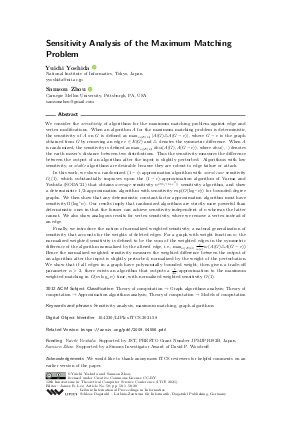LIPIcs.ITCS.2021.58.pdf
- Filesize: 0.59 MB
- 20 pages

 Creative Commons Attribution 3.0 Unported license
Creative Commons Attribution 3.0 Unported license













Feedback for Dagstuhl Publishing